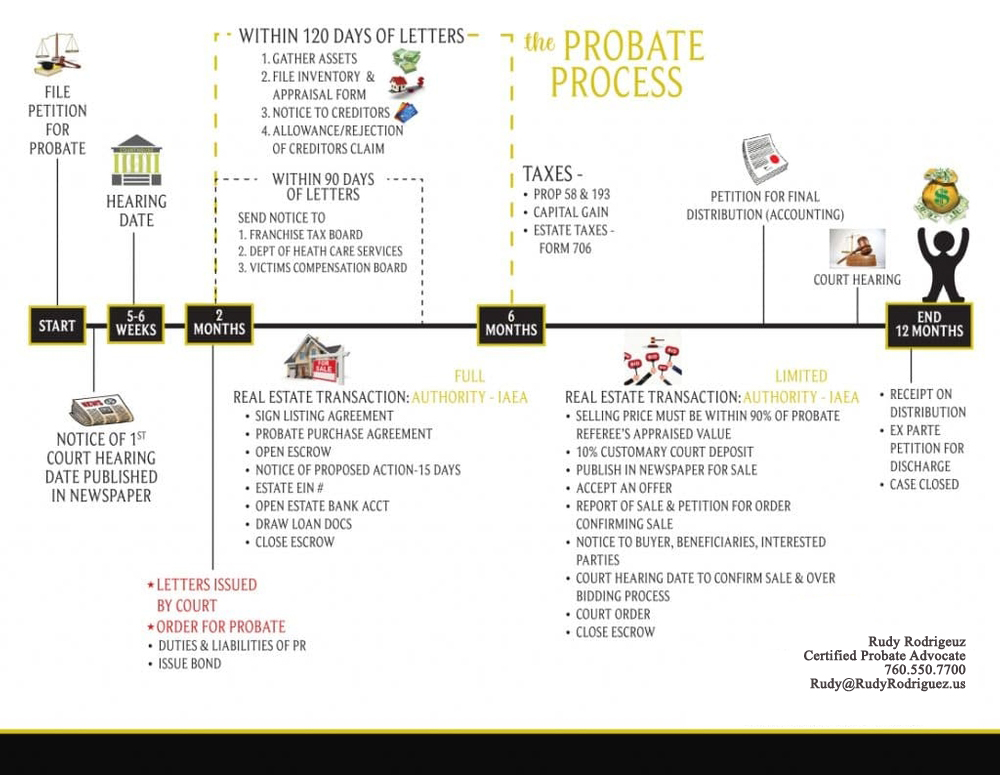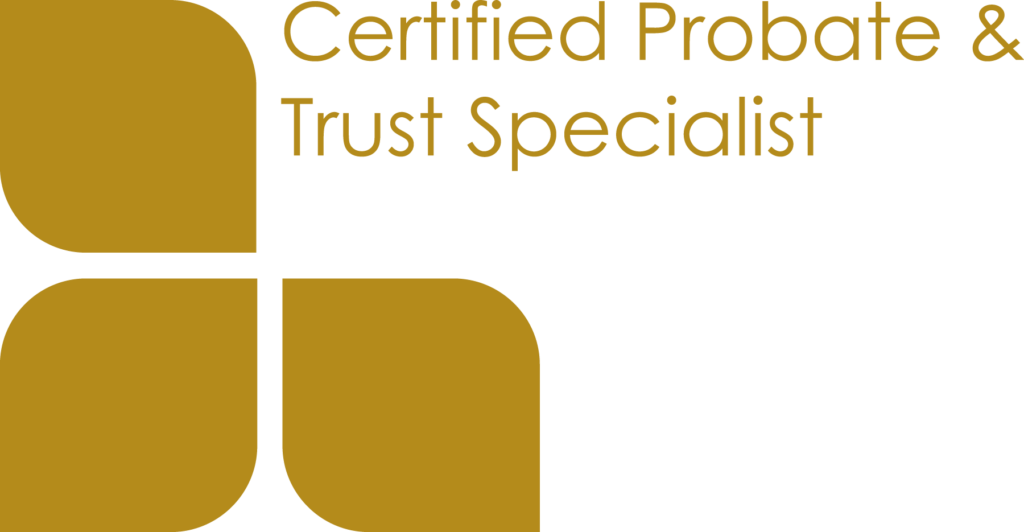If you own any property at all, you probably know about estate planning. You can decide what happens to your assets after you die, of course. But sometimes, people don’t pen a will or trust before they pass. Or, if they do, it’s not clear in its directions. They might even have debts that conflict with their wishes. These situations can lead to probate, well-known for dragging on, though the actual length depends on several factors. Considering that an estate may require probate even if the deceased wrote a will, acquainting yourself with these factors is vital. Here’s an overview of the main things you need to understand about the probate process so you can be ready
A financial advisor can provide valuable guidance as you prepare for probate.
What Is Probate?
Probate is a legal process wherein a court oversees the settlement of an estate after the owner passes. During it, the court figures out how to distribute assets to heirs. The court in this process will also authenticate your will, if you wrote one, and name an executor of estate to supervise the probate process. The executor of estate, or the estate representative, tends to be the decedent’s closest blood relation or another living relative.
How Does Probate Work?
Probate goes through a long list of procedures that depend on the state the decedent lived in and the type of estate he or she had.
The first thing the court does is authenticate the decedent’s last will and testament. Then it appoints an executor. Once again, this is likely someone related to the deceased individual who will ensure beneficiaries receive their inheritance and the sale of items. For example, if the deceased’s home needs to be sold through probate court, the executor works with the court and a real estate agent.
Next, the court locates and assesses all the property owned by the deceased. If there are any debts left behind, the court uses these assets to pay off the debts. Afterward, the court distributes the remaining estate to the heirs.
The court might need to go through this process if the deceased died intestate, with an unclear will or debts in their name.
The Duration of Probate
Probate takes time to ensure everything is dealt with and according to the law. As a result, it can take from a few months up to over a year. The long list of variables all contribute to the overall length. Probate changes based on the situation and where the estate is located. Here are some factors that influence how long it takes:
Estate Size
An estate’s size contributes heavily to the probate process’s timeline. Every asset tied to the estate requires its own considerations and paperwork.
However, certain states use the total value of the estate to determine its size instead. Calculating this depends on state-level laws and the type of assets included in the estate, namely, probate and non-probate assets.
Possessions subject to probate include:
Personal property like valuables
Cash and cash accounts that are not transfer-on-death (TOD) accounts
Transferable assets without beneficiaries
Assets with shared ownership or tenancy in common (TIC)
Real estate
Possessions not typically subject to probate include:
Insurance proceeds
Assets or accounts with a joint tenant with right of survivorship
Accounts that have a beneficiary or TOD designation
Trusts (and the assets included)
Some states allow shorter probate processing or waive it altogether for low-value properties. For example, Indiana has a small estate limit of $50,000, which only includes assets subject to probate. Beneficiaries can fill out a Small Estate Claim Form (or an Affidavit for Transfer of Personal Property) and avoid probate for estates below that value.
State Laws
Probate is not nationally regulated, and state-level laws vary. So, probate in one state can go relatively quickly, like a few weeks. Others can last up to two years. Some states have made efforts to simplify that by adopting the Uniform Probate Code (UPC). Its goal is to streamline the probate process by creating standardized laws. In total, though, only 18 states have adopted the code, some just in part.
However, if a decedent owned assets in multiple states, the timeline will increase, even if both use the UPC. That’s because beneficiaries and executors have to go through secondary probate proceedings, called ancillary probate, in the non-primary state as well. For example, this might happen if the deceased owned a vacation home.
In-Fighting Among Heirs
State laws and assets complicate things, but so do heirs. Multiple beneficiaries can slow down the probate proceedings. In particular, conflict can drag out an otherwise smooth legal process since disagreements can lead to delays or even a full stop. Even small disputes can contribute to this, such as arguments over cosmetic changes to a home before sale.
Beneficiaries with personal ties to the estate can all have different viewpoints, drawing out the process and making it more emotionally difficult. Beneficiaries may hire attorneys as well, which also adds to the fire.
Absence or Presence of a Will
If there’s a will – great! It usually makes probate easier and quicker. A clear and detailed will leaves directions that are easy for the court and executor to follow. But while some wills help you avoid probate, others can’t.
If the decedent passed with debts, then creditors need to be paid using assets from the estate. The court helps organize those payments before distributing the rest of estate’s assets. Alternatively, a will may have mistakes or seem vague. For example, a decedent may overlook non-physical assets or create a DIY will that’s found invalid. Beneficiaries can try to contest a will if they think it’s invalid, but not only does that slow things down, it’s costly and can decrease the estate’s value.
A lack of a will means there is no guidance from the decedent. So, the court and executor have to work through the estate and distribution from scratch.
The Estate Includes a House
Houses almost always lead to probate. Homes are often sold as a way to repay debts or dissolve the estate to distribute assets.
As any homeowner knows, the timeline for selling property varies drastically. Market conditions, among other variables, can weigh everything down. And, the family must wait for a court-appointed executor before they can even prepare the home to sell – everything from hiring a real estate agent to making repairs get puts on hold until then.
On the other hand, handing down the property to an heir goes much quicker than selling. Living trusts and other methods of direct transfer also speed everything up.
Debts and Taxes
Taxes and leftover debts are crucial factors in the time needed to close an estate. Transfers to these debtors have to occur before beneficiaries can receive anything.
Generally, after an individual dies, his or her creditors must receive a notice. This notice gives them a deadline to generate any claims for money the estate owed. In addition, some states may require public notice in the newspaper for any unknown creditors, giving them access to a deadline as well. Depending on the state’s laws, the notice may circulate for up to a few weeks.
Each state implements its own deadline. For example, Pennsylvania gives debtors one year to file a claim. By contrast, Texas only allows for four months after written notice. Obviously, the longer the claims period, the longer the delay in the probate process.
Taxes on an estate also can take a while. The estate must receive a closing letter from the IRS and the state taxing authority to close out the probate process. You can expect to receive the former within approximately six months.
Can Probate Be Avoided?
Probate can be lengthy, costly and upsetting to family members. Luckily, there are strategies out there that can help you avoid it.
One of the easiest ways is to create an irrevocable trust or revocable living trust. These help you transfer property and ensure that assets avoid probate.
You can also share ownership of some assets. Joint accounts with a right of survivorship pass on to your partner or the surviving owner after you pass. Married couples often choose to do this. However, this is only a strong method when the first spouse passes. The surviving spouse may want to consider alternatives to protect their assets. Sharing with a child, for example, may expose the funds to the child’s creditors.
It’s also possible to set up TOD or payable on death (POD) designations. These allow you to transfer directly to a beneficiary. POD applies to bank assets, such as savings or checking accounts, whereas TOD works for brokerage accounts and stocks.
The Bottom Line

Unless your loved one puts their estate into a living trust or similar legal arrangement, the fact of the matter is that their assets will likely need to pass through probate when they die. Probate is a complicated, and usually lengthy, court process where assets are sold or distributed and any outstanding debts against the estate are settled. If your loved one has left behind property that needs to pass through probate, a certified probate real estate specialist can be a valuable partner in the process. Here’s a look at what this specific type of real estate professional does and how they can help as you navigate your loved one’s estate.
Disposing of an estate’s assets in an equitable and tax efficient manner is best done with the guidance and insight of a financial advisor.
What Is a Certified Probate & Trust Specialist?
A certified probate & trust specialist, or CPTS, is a real estate professional who has completed an educational certification program centered around the probate process. This individual specializes in helping families navigate the estate process after a relative or other benefactor passes away.
What a Certified Probate & Trust Specialist Does
So, what exactly is a certified probate & trust specialist’s role? A CPTS is trained to help you navigate through the probate court system. This includes monitoring legal deadlines and ensuring that they are not missed. He or she will also offer guidance on the complicated legal steps and documentation that are required as part of the probate process. They can also minimize the potential for disputes between heirs.
In addition to guiding you through the paperwork and other aspects of probate court, your CPTS can also recommend inspectors, appraisers, contractors and other professionals. This ensures that the passed-down property is accurately appraised, necessary repairs are made and that it is prepared to go on the market.
A CPTS is a designated realtor can walk you through every step of the marketing, negotiation, sale and escrow processes. They can help you market, sell and manage the proceeds from an estate-passed property as per the probate court’s rules. They also ensure that the sale of the property is as successful as possible.
The Bottom Line
If you are the beneficiary of property assets that need to pass through probate, CPTS can help guide you along the way. These professionals are real estate agents who hold special certifications and are experts at probate court requirements. They also have the knowledge and understanding to help prep, market and sell the property in question. CPTS professionals can answer questions you have about probate and offer support, guidance and trusted advice along the way.
A CPTS isn’t the only professional who can guide you through a probate property sale. However, this prestigious designation often means that you have a well-versed and knowledgeable partner throughout the process.
All Information is for educational purposes only. It is deemed reliable, but it is recommended that you seek legal counsel regarding this subject.

Certified Probate & Trust Specialist
As a Certified Probate & Trust Specialist you can rest assured that as a Real estate professional, I have the understanding of the Probate transaction and can represent sellers or buyers in probate transactions, as well as investors looking to purchase probate properties.


